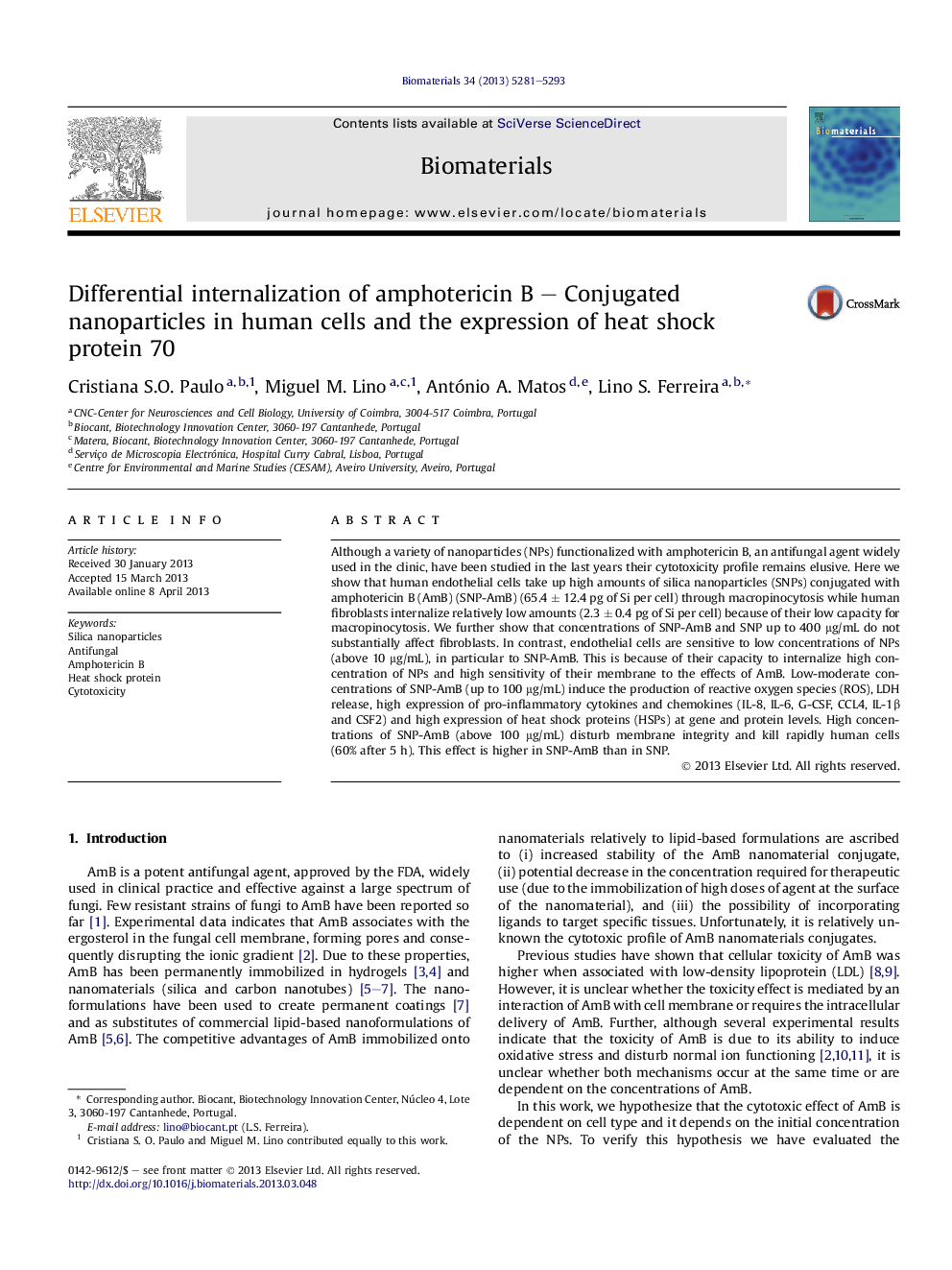| کد مقاله | کد نشریه | سال انتشار | مقاله انگلیسی | نسخه تمام متن |
|---|---|---|---|---|
| 10229026 | 503 | 2013 | 13 صفحه PDF | دانلود رایگان |
عنوان انگلیسی مقاله ISI
Differential internalization of amphotericin B - Conjugated nanoparticles in human cells and the expression of heat shock protein 70
دانلود مقاله + سفارش ترجمه
دانلود مقاله ISI انگلیسی
رایگان برای ایرانیان
کلمات کلیدی
موضوعات مرتبط
مهندسی و علوم پایه
مهندسی شیمی
بیو مهندسی (مهندسی زیستی)
پیش نمایش صفحه اول مقاله

چکیده انگلیسی
Although a variety of nanoparticles (NPs) functionalized with amphotericin B, an antifungal agent widely used in the clinic, have been studied in the last years their cytotoxicity profile remains elusive. Here we show that human endothelial cells take up high amounts of silica nanoparticles (SNPs) conjugated with amphotericin B (AmB) (SNP-AmB) (65.4 ± 12.4 pg of Si per cell) through macropinocytosis while human fibroblasts internalize relatively low amounts (2.3 ± 0.4 pg of Si per cell) because of their low capacity for macropinocytosis. We further show that concentrations of SNP-AmB and SNP up to 400 μg/mL do not substantially affect fibroblasts. In contrast, endothelial cells are sensitive to low concentrations of NPs (above 10 μg/mL), in particular to SNP-AmB. This is because of their capacity to internalize high concentration of NPs and high sensitivity of their membrane to the effects of AmB. Low-moderate concentrations of SNP-AmB (up to 100 μg/mL) induce the production of reactive oxygen species (ROS), LDH release, high expression of pro-inflammatory cytokines and chemokines (IL-8, IL-6, G-CSF, CCL4, IL-1β and CSF2) and high expression of heat shock proteins (HSPs) at gene and protein levels. High concentrations of SNP-AmB (above 100 μg/mL) disturb membrane integrity and kill rapidly human cells (60% after 5 h). This effect is higher in SNP-AmB than in SNP.
ناشر
Database: Elsevier - ScienceDirect (ساینس دایرکت)
Journal: Biomaterials - Volume 34, Issue 21, July 2013, Pages 5281-5293
Journal: Biomaterials - Volume 34, Issue 21, July 2013, Pages 5281-5293
نویسندگان
Cristiana S.O. Paulo, Miguel M. Lino, António A. Matos, Lino S. Ferreira,